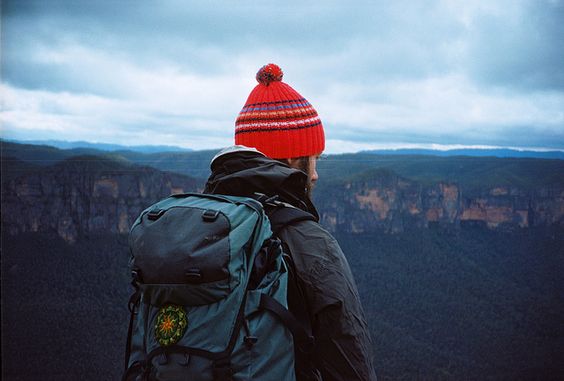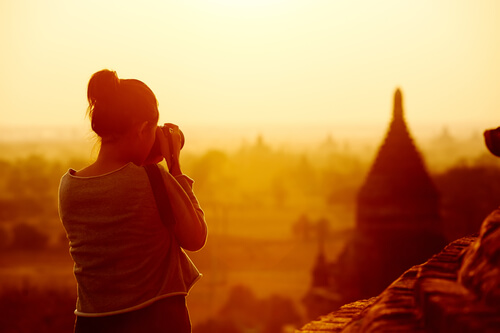Travel Helps Us Leave Prejudices Behind

Whenever you’ve traveled have you ever experienced that lovely sensation of being reconciled with life itself? Because when you travel, you open your mind. You become more tolerant. You are able to understand your prejudices and give yourself time to unravel it slowly as you live through your new experiences.
Travel is the most authentic way to get to know the world, but also to really get to know the prejudices we carry around with us, without blinding ourselves to them . We automatically assume that our way of understanding life, our day to day living, is the correct one. And when we travel we discover “how strange” the other people are, and how “strange” we can be too.
“What strange customs these “foreigners” have!”, “Why do they do that?”, “He’s making a fool of himself…” These are phrases you’ve probably heard a number of times, or they might even be phrases that you yourself have pronounced.

The biggest prejudice: “mine is right, yours is wrong”
We tend to have a kind of bias when we interpret the information we receive all around us. Whatever is our own, whatever is familiar to us, whatever we are used to seeing and doing…that is what we consider to be “normal”. Whatever doesn’t fit in with our own customs is “strange”. It’s as if there’s a dividing line between what is right and what is wrong. Between the proper way of doing and understanding things, and the strange, bizarre way of doing them.
To understand this better, let’s give an example. If you are a calm and composed person, think about how you felt at some point in your life when a sudden burst of anger challenged your powers of self-control. You probably felt strange and awkward at the same time, because people who don’t often get angry, often do not know how to get angry.
The truth is that even if we are normally calm and composed, anger is still a part of us, ready to explode. Our different nuances form and shape us. We shouldn’t try to deny or cover up essential parts of our being simply because they aren’t what we normally express.
Whatever is our own, whatever is familiar to us, whatever we are used to seeing and doing, that is what is “normal”
Our culture shapes us, but it does not define us
Something similar happens when we travel. We shouldn’t claim that only our understanding of things comes from common sense, and that of others’ comes from a meaningless stroke of luck. People and their customs are shaped from their cultural heritage, social environment and surroundings.

Our surroundings shape and mould us from childhood. And so the experiences in which we relate to people who are different to us, when we leave our usual environment, travel and try out different routines – they are the ones that start to break our genetic mould. When we are able to look at what is “foreign” with the eyes of curiosity and not of prejudice, then we are taking a big step on the road to tolerance.
Claiming that our way of understanding life is the only correct and meaningful one is a very limited way of thinking and one that, rather than enriching us, will bring us poverty, poverty in our soul. We should understand that true wealth comes from the lessons we learn day by day in our lives. Lessons that make us more open and tolerant.
Look at life with curiosity and with prejudice
If only we could stop contemplating our navel and take a look beyond – a look of generosity and healthy curiosity. A look that is a ticket to other souls, other ways of thinking, other ways of living. I rid myself of my prejudice and look at you, stranger, with open arms. With my soul ready to learn.

You will learn to examine your experiences. You will have time to continue to build yourself as a person, keeping what you want and getting rid of what you don’t want in your life. But if you relate to the world with your eyes closed, you will not be able to see anything. Only darkness. And sometimes a terrifying darkness at that. If you open them, you will see the light. The light that opens you up to life … the light that will take you on the road to tolerance.
Whenever you’ve traveled have you ever experienced that lovely sensation of being reconciled with life itself? Because when you travel, you open your mind. You become more tolerant. You are able to understand your prejudices and give yourself time to unravel it slowly as you live through your new experiences.
Travel is the most authentic way to get to know the world, but also to really get to know the prejudices we carry around with us, without blinding ourselves to them . We automatically assume that our way of understanding life, our day to day living, is the correct one. And when we travel we discover “how strange” the other people are, and how “strange” we can be too.
“What strange customs these “foreigners” have!”, “Why do they do that?”, “He’s making a fool of himself…” These are phrases you’ve probably heard a number of times, or they might even be phrases that you yourself have pronounced.

The biggest prejudice: “mine is right, yours is wrong”
We tend to have a kind of bias when we interpret the information we receive all around us. Whatever is our own, whatever is familiar to us, whatever we are used to seeing and doing…that is what we consider to be “normal”. Whatever doesn’t fit in with our own customs is “strange”. It’s as if there’s a dividing line between what is right and what is wrong. Between the proper way of doing and understanding things, and the strange, bizarre way of doing them.
To understand this better, let’s give an example. If you are a calm and composed person, think about how you felt at some point in your life when a sudden burst of anger challenged your powers of self-control. You probably felt strange and awkward at the same time, because people who don’t often get angry, often do not know how to get angry.
The truth is that even if we are normally calm and composed, anger is still a part of us, ready to explode. Our different nuances form and shape us. We shouldn’t try to deny or cover up essential parts of our being simply because they aren’t what we normally express.
Whatever is our own, whatever is familiar to us, whatever we are used to seeing and doing, that is what is “normal”
Our culture shapes us, but it does not define us
Something similar happens when we travel. We shouldn’t claim that only our understanding of things comes from common sense, and that of others’ comes from a meaningless stroke of luck. People and their customs are shaped from their cultural heritage, social environment and surroundings.

Our surroundings shape and mould us from childhood. And so the experiences in which we relate to people who are different to us, when we leave our usual environment, travel and try out different routines – they are the ones that start to break our genetic mould. When we are able to look at what is “foreign” with the eyes of curiosity and not of prejudice, then we are taking a big step on the road to tolerance.
Claiming that our way of understanding life is the only correct and meaningful one is a very limited way of thinking and one that, rather than enriching us, will bring us poverty, poverty in our soul. We should understand that true wealth comes from the lessons we learn day by day in our lives. Lessons that make us more open and tolerant.
Look at life with curiosity and with prejudice
If only we could stop contemplating our navel and take a look beyond – a look of generosity and healthy curiosity. A look that is a ticket to other souls, other ways of thinking, other ways of living. I rid myself of my prejudice and look at you, stranger, with open arms. With my soul ready to learn.

You will learn to examine your experiences. You will have time to continue to build yourself as a person, keeping what you want and getting rid of what you don’t want in your life. But if you relate to the world with your eyes closed, you will not be able to see anything. Only darkness. And sometimes a terrifying darkness at that. If you open them, you will see the light. The light that opens you up to life … the light that will take you on the road to tolerance.
This text is provided for informational purposes only and does not replace consultation with a professional. If in doubt, consult your specialist.







